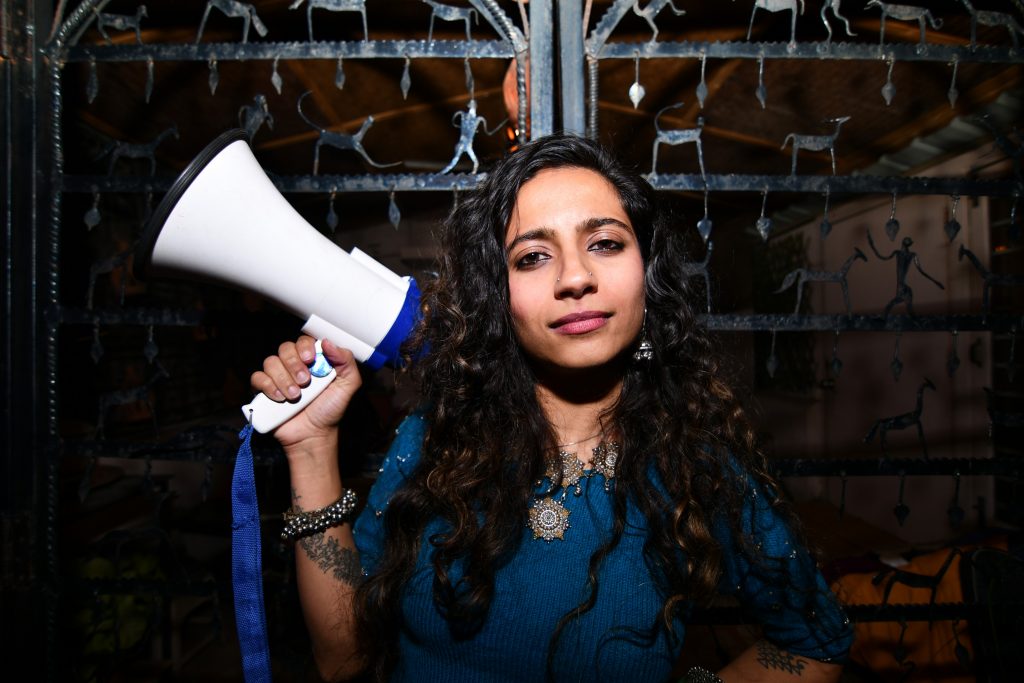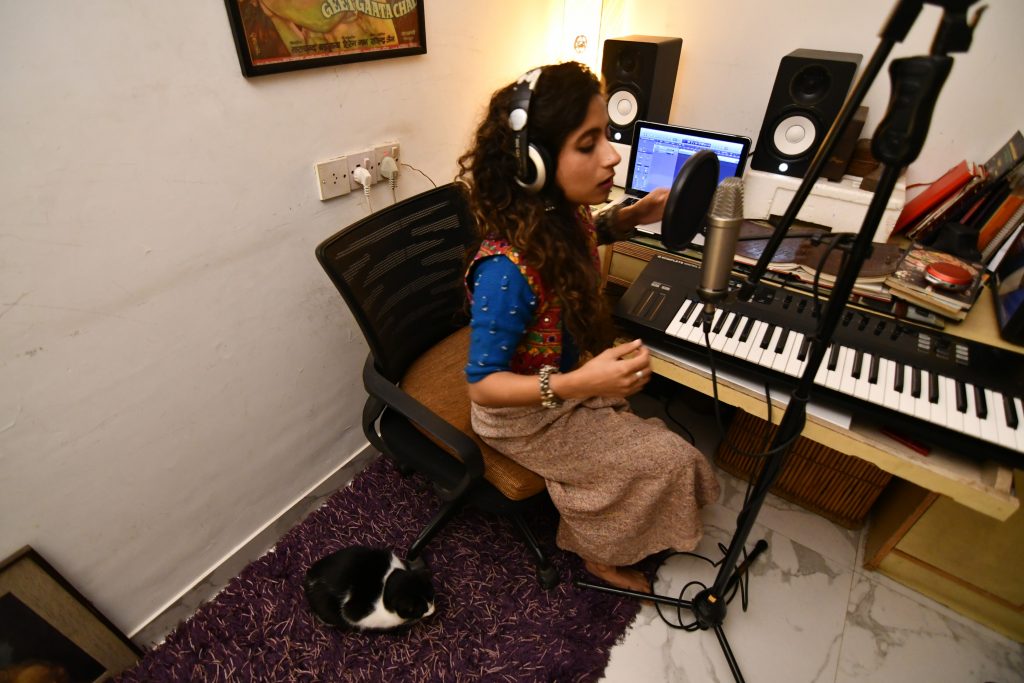Shaurya Thapa caught up with the indie songwriter, singer, producer to talk about her musical journey and the artistic process that keeps her going.
When you first hear her soulful voice, it instantly stands out for its power and control over the vocal range. Even to an amateur ear, the strains of classical Hindustani are unmistakable. This is exactly what sets Mahima Dayal Mathur aka Bawari Basanti apart from the numerous indie-voices around.
As a student of St. Stephen’s College, Delhi University, Mahima Mathur would often travel to the campus with her friends in a beat up Tata Indica, which they jokingly called Dhanno. This was in reference to Basanti’s horse in the cult Bollywood classic, Sholay and even after the Indica was gone, the name, Basanti stuck with Mathur and that is where Bawari Basanti was born.
After her humanities degree, Mahima received a scholarship for Swarnabhoomi Academy of Music where she realized she could actually make something out of a career in music. Now, her Dhanno has been replaced with a bigger car. She’s getting more gigs, collaborations, and plans for a new album. Basanti has now reincarnated as Bawari Basanti.

Image Credit: Rishabh Gogoi
“I started singing, individually and for a couple of bands. But I wasn’t that confident of my music back then whether it was good or bad. I wasn’t sure of what exactly is my identity. So, secretly I began to use that name so that if my music doesn’t work, I still can’t be blamed directly.” She tells us her origin story, sitting on a patch of grass at Blue Tokai café.
As a singer-songwriter-producer, she is as comfortable collaborating with Seedhe Maut as she is busting out a sufi ballad. (she recently collaborated with the former on a song) Thematically, her music hardly shows any strains of pretense. She just tries to be herself, “a contemporary Indian woman,” she says. Her lyrics tend to emphasise on the same.
In her song Izhar, she writes. ‘Karna ho pyar ka Izehar, toh kis park mein baithein yar. Gharon pe azadi nahi sabki aur bahar sainikon ka raaj’. This roughly translates to ‘To proclaim our love, in which park should we sit? Not everyone has freedom in their homes, and outside, soldiers rule.’ The feeling of being trapped or being unheard is furthered conveyed in powerful stills from Izhar’s video (directed by Vaksh Vimal) which has Mathur crooning in a saree, her hands in cuffs.
Coming to music videos, she says she is the creative force behind most of the visuals in her music. This got clearer as she explained the making of the video for Underwater (from her EP by the same name). Directed and edited by her, the video presents Mathur at her most vulnerable and real. “That video made me feel like I can be however I want. I don’t give a f***. Maybe that’s also the idea of Basanti.”

Image Credit: Rishabh Gogoi
She comes back to the Sholay character, “now even though Basanti was one of the first female protagonists in Hindi cinema to get a major role. And yet in that role, she’s sidelined or abused. That’s the irony which I or my music tries to battle or talk about. So, even though some of us have been treated like Basanti, we will break away from that and be a bit Bawari.”She says, this is the reason sometimes her shows start with “Basanti, inn kutto ke saamne ke saamne, kutto ke saamne, naachegi, ” she chuckles.
As of now, if you want to check her discography, most of her songs are available on platforms like YouTube and Spotify. Her plan is to release a single almost every month, till she’s ready with an album this year. She will also be performing at Goa Sunsplash soon.


